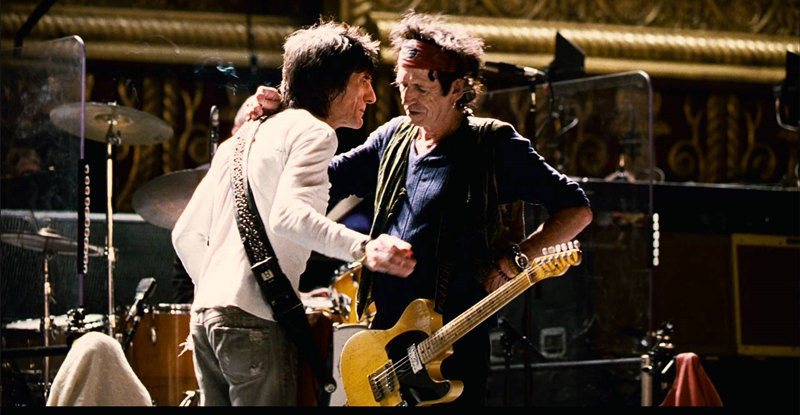Note: In the following joint Blu-ray review, Yunda Eddie Feng joins John in commenting on the film, with John also writing up the Video, Audio, Extras, and Parting Thoughts.
The Film According to John:
Based on Daphne du Maurier’s best-selling 1938 novel and winning the Academy Award for Best Picture in 1940, Alfred Hitchcock’s “Rebecca” is moody and atmospheric and boasts some of the finest characterizations found in any Hitchcock film. Stars Laurence Olivier, Joan Fontaine, Judith Anderson, and George Sanders turn in memorable performances to make this one of the half dozen best projects the old master ever framed. Its release on Blu-ray brings added sharpness and detail to the black-and-white print as well as clearer audio, as expected, further heightening our enjoyment of an old favorite.
My “Random House Unabridged Dictionary” defines “gothic” as “noting or pertaining to a style of literature characterized by a gloomy setting, grotesque, mysterious, or violent events, and an atmosphere of degeneration and decay.” That pretty much describes the movie “Rebecca,” a gothic romance in the classic sense.
Olivier stars as the tormented Maxim de Winter, a wealthy and sophisticated man whose wife, Rebecca, has recently died in a boating accident. While in Monte Carlo, where the story begins, he falls in love with a shy and modest young woman (Fontaine), the paid traveling companion to a snobby dowager. After a whirlwind courtship they marry, and he takes her away with him to his family home, Manderley, a mansion overlooking the sea on the coast of Cornwall. The great house, with the echoes of its former mistress, is as much a character in the story as Olivier or Fontaine.
And then there is Mrs. Danvers, the sinister housekeeper (Anderson), whose icy demeanor would freeze tulips in May. I daresay it is she and the house that people tend to remember most about the film, despite the excellence of the other cast members. The devotion of Mrs. Danvers to the late Mrs. de Winter is unshakable to the end.
Once the setting focuses on Manderley, the tone of the film changes abruptly. The chill of the house, the storm-tossed waves, and the memories of Rebecca’s death haunt its occupants, creating an almost palpable tension. While the film offers no overt violence or thrills, it is a model of sustained mystery and eerie suspense, thanks largely to Hitchcock’s deft direction, the air of gloom and melancholy cast by the house itself, George Barnes’ award-winning cinematography, and Franz Waxman’s haunting musical score.
Sure, “Rebecca” is a little too long, the beginning too wordy, and the ending dragging out beyond its major revelation toward too many anticlimaxes. Audiences have come to accept these things as part of the process of adapting a book to the screen. Still, it was enough for the Academy to award it Oscars for Best Picture and Best Cinematography, beating out perhaps worthier films like “The Great Dictator” and “The Grapes of Wrath,” and to nominate it for nine more. Personally, I tend to see “Rebecca” in the same category as I see another of my favorite films of the period, “Jane Eyre” from 1943. Both stories are gothic romances involving a poor, young, innocent woman; a huge, isolated manor house; and a rich, mysterious, brooding master of the estate. Oh, and both movies star Joan Fontaine. Maybe it became a matter of typecasting for her. No matter; it worked.
John’s film rating: 8/10
The Film According to Eddie:
“Rebecca” has the distinction of being the only Hitchcock-directed film to win the Best Picture Oscar. (Ol’ Hitch himself never won the directing Oscar.) However, the movie doesn’t really feel like a Hitchcock production. Rather, given its literary origins and panoramic master shots, it feels like the work of über-producer David O. Selznick. Selznick was the Jerry Bruckheimer of his day–a producer who exercised more authority over a movie than any of his directors. However, whereas Bruckheimer continues to delude himself into thinking that “Pearl Harbor” was a serious movie, Selznick won back-to-back Best Picture Oscars with “Gone With the Wind” (1939) and “Rebecca” (1940).
In “Rebecca,” Joan Fontaine plays the young traveling companion of an overbearing aristocratic lady on vacation in Monte Carlo. There, she meets Maxim de Winter (Laurence Olivier). The two have a rather odd courtship, and they get married within a matter of days. Max was recently widowed when his wife Rebecca died in a boating incident.
The couple returns to Manderley, Max’s humongous estate in England. At Manderley, Rebecca seems to haunt every facet of daily life. Indeed, the new Mrs. De Winter (poor Joanie!) faces being overwhelmed by the dead Rebecca. Especially creepy is the head of the household, Mrs. Danvers (Judith Anderson delivering a terrifying performance). Our heroine thinks that everyone is comparing her to the old Mrs. de Winter, and she fears that her inability to compare to Rebecca is causing Max to drift away…
Given that this is a Hitchcock movie, nothing is what it seems. It is a testament to the master’s technique that the film plays like a supernatural thriller when it really is a drama with mystery elements embedded into its story. I must say, though, that I feel that the success of “Rebecca” depends largely on the screenplay (written by Robert E. Sherwood and Joan Harrison) and the source novel of the same title (written by Daphne du Maurier). Every detail of the plot has been carefully constructed, and the clever way that the secrets in the film unravel cannot be attributed to the director in any way. Indeed, I think that the principal filmmakers (Hitchcock and Selznick) got in the way of their own movie.
Hitchcock’s earlier efforts were mostly tautly-paced efforts. Over the years, he began to indulge in longer running times. “Rebecca” was one of his films that ran over two hours in length. Boy, does this movie take its time getting started at the beginning. The first half of the film isn’t slow; it just has some fat that could have been trimmed. (Perhaps Selznick had trouble trimming “Rebecca” because “Gone With the Wind” had been four-hours long!) At any rate, I couldn’t help but think that the filmmakers were self-consciously trying to make a flick with more “heft” than the usual fare.
Some contemporary viewers will be put-off by the brusque manner of Olivier’s character. However, you must understand that he was simply acting the way a person of Max’s social stature would behave during the story’s time frame. Mr. Olivier’s commanding, arrogant presence fits his role perfectly, and it is in performances like the one here that you can see why he is considered one of the top five actors of the twentieth century.
In the other lead, Joan Fontaine acquits herself just as well as Olivier does. One will observe that Fontaine plays a character described as “I”–the character doesn’t even have her own name! The character assumes an identity when she marries Maxim de Winter, but she is still known by someone else’s name (“Mrs. de Winter” belongs to both Maxim and Rebecca–ouch!). Fontaine does a great job of using her delicate features and a shy on-screen persona to generate sympathy for her innocent, naive, but determined character.
Eddie’s film rating: 8/10
Video:
A high bit rate MPEG-4/AVC encode and a dual-layer BD50 ensure that we get the most from a newly remastered, 1.33:1 ratio, black-and-white print. The first thing one notices is that the video engineers retained the movie’s natural grain, which is especially prominent during the opening titles and the prologue. By the time they pass, one probably will have forgotten about any issues of grain, as it tends to fade into memory as the film goes on. There is hardly any noticeable print damage except also during the opening shots, where one can see some occasional noise, ticks, and flecks. More important, the high-definition Blu-ray image looks well detailed and well delineated, with excellent B&W contrasts. Indeed, it probably hasn’t looked this good in seventy years.
Audio:
Monaural sound from 1940 is still monaural sound from 1940, no matter how good the audio processing is. But at least a lossless DTS-HD Master Audio track such as the one we have here can ease our minds about losing anything in the replication process. As a result, the midrange, which is where about ninety-nine percent of the sound emanates, is quite clean, smooth, quiet, and easy on the ear. Don’t expect much more, however, as there is obviously a limited dynamic range, bass, and treble.
Extras:
Here we find a healthy set of extras that begin with an audio commentary by film critic Richard Schickel, who by now is an old hand at this sort of thing; he provides a no-nonsense description of the movie, its stars, its production, and so on. Next, we get an isolated music and effects track, if you don’t want the dialogue to interfere with the score. Then, there are two featurettes: “The Making of Rebecca,” 2008, twenty-eight minutes, widescreen, with comments from Hitchcock’s granddaughter and a number of filmmakers and film historians; followed by “The Gothic World of Daphne Du Maurier,” nineteen minutes on the author, three of whose works Hitchcock turned into films: “Jamaica Inn,” “Rebecca,” and “The Birds.”
Next up we find a pair of screen tests, the first with Margaret Sullavan auditioning for the role that went to Joan Fontaine and the second with Vivian Leigh trying out for the part. After those items, we get three audio-only radio plays: A 1938 radio show with Orson Welles, Margaret Sullavan, Mildred Natwick, and Agnes Moorhead; a 1941 radio show with Ronald Colman, Ida Lupino, and Judith Anderson; and a 1950 radio show with Laurence Olivier, Vivian Leigh, and Betty Blythe. Additionally, there are two audio-only interviews with Hitchcock, one conducted by American writer, actor, and director Peter Bogdanovich and the other by French writer, director, and producer Francois Truffaut.
The extras wrap with an original theatrical trailer; twenty-eight scene selections; English as the only spoken-language choice; and English captions for the hearing impaired.
Parting Thoughts:
Despite whatever the new Mrs. de Winter tries to do, despite all her efforts, the shadow of the beautiful Rebecca comes between her and her husband. That is, until we learn the truth about the mysterious former wife. I love this story. “Rebecca” is a movie that rewards a multitude of repeat viewings.


